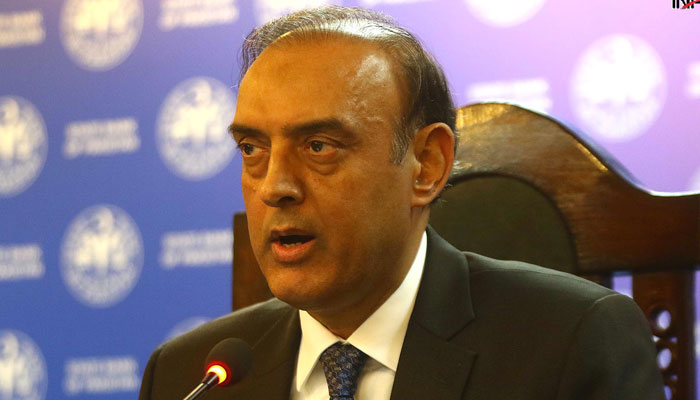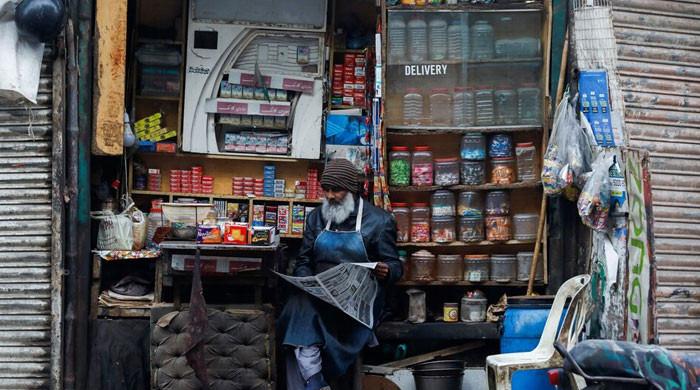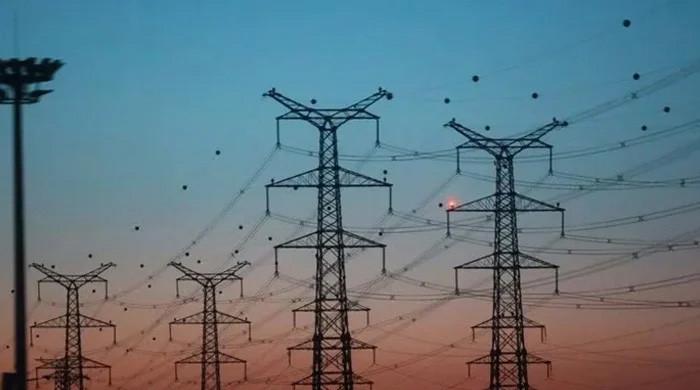Pakistan 'very comfortably' placed to meet IMF targets, SBP chief assures global investors
SBP governor says with support from partners Pakistan will achieve sustainable economic growth in medium term
October 13, 2023

- Pakistan on-track to address structural weaknesses, says SBP chief.
- Hopeful of achieving sustainable economic growth in medium term.
- Says stabilisation measures have started yielding results.
MARRAKECH: State Bank of Pakistan (SBP) Governor Jameel Ahmad on Friday assured investors that the country is “very comfortably placed to meet” International Monetary Fund's (IMF) targets for end-September, net international reserves (NIR) and net domestic assets (NDA).
The governor made the assurance during his meeting with key international investors during events organised by global banks, including Barclays, JP Morgan, Standard Bank, and Jefferies on the sidelines of the IMF-World Bank meetings in Marrakech, Morocco.
As per a State Bank press release, the investors were briefed about the recent macroeconomic developments, policy responses to current challenges, and the outlook of Pakistan’s economy, and also answered their questions.
The governor informed the investors that the “current policy mix is geared” to achieve stabilisation by addressing the “macroeconomic imbalances”.
He stated that the SBP was among the first central banks that began to tighten monetary policy in the wake of the rising inflation globally. However, certain domestic challenges such as the 2022 floods had “complicated SBP’s efforts to bring down inflation”.
“Stabilisation measures have started yielding results. Inflation has come down to 31.4% in September 2023 after peaking at 38.0% in May 2023 and is expected to continue its downward trajectory over the coming months, whereas the external account has improved considerably and foreign exchange buffers are being built up,” the governor was quoted.
He added that the central bank expects inflation to “come down significantly during the second half of this fiscal year”.
“Going forward, the Stand-By arrangement with the IMF is expected to support the ongoing policy efforts to stabilise the economy,” said the governor.
He stated that the “foreign exchange buffers are improving with both build-up in reserves and reduction in forward foreign exchange liabilities”.
He explained that since January 2023, SBP’s foreign exchange reserves improved from a low of $3.1 billion to $7.6 billion as of the end of September 2023. The reserve build-up was largely supported by non-debt-creating inflows amid favourable market conditions.
“At the same time, SBP’s forward foreign exchange liabilities have declined and the forward book target of $4.2 billion for end-September 2023 agreed with the IMF has already been met by a wide margin. Similarly, SBP is also very comfortably placed to meet the other end-September IMF targets, including Net International Reserves (NIR) and Net Domestic Assets (NDA),” said the governor.
The governor also informed the investors that Pakistan is “on-track to address the longstanding structural weaknesses”, adding that with the support from multilateral and bilateral partners the country “would be able to achieve sustainable and inclusive economic growth” in the medium term.
Pakistan likely to receive next IMF tranche
Last week, a brokerage firm report had stated that Pakistan was likely to receive the next tranche of the $3 billion stand-by arrangement with the IMF even though it may miss a few deadlines.
Topline Securities said the country had met the targets for net international reserves, net domestic assets, and foreign currency swap/forward position as of the end of June 2023 but highlighted that Islamabad had missed the targets of the primary deficit, which measures the fiscal balance excluding interest payments, and for external public debt disbursements.
The report also said that Pakistan is yet to implement the gas price adjustment it had agreed with the global lender. The adjustment was a prior action for the completion of the second review of the program.
Pakistan got the first installment from the IMF in the amount of $1.2 billion in July after the Executive Board of the lender approved the bailout package to stabilise the country’s economy.
Under the agreement, the remaining $1.8 billion from the IMF has to be disbursed in two tranches after reviews in November and February.
The latest IMF programme has set nine performance criteria, four indicative targets, and 10 structural benchmarks for the upcoming review.











